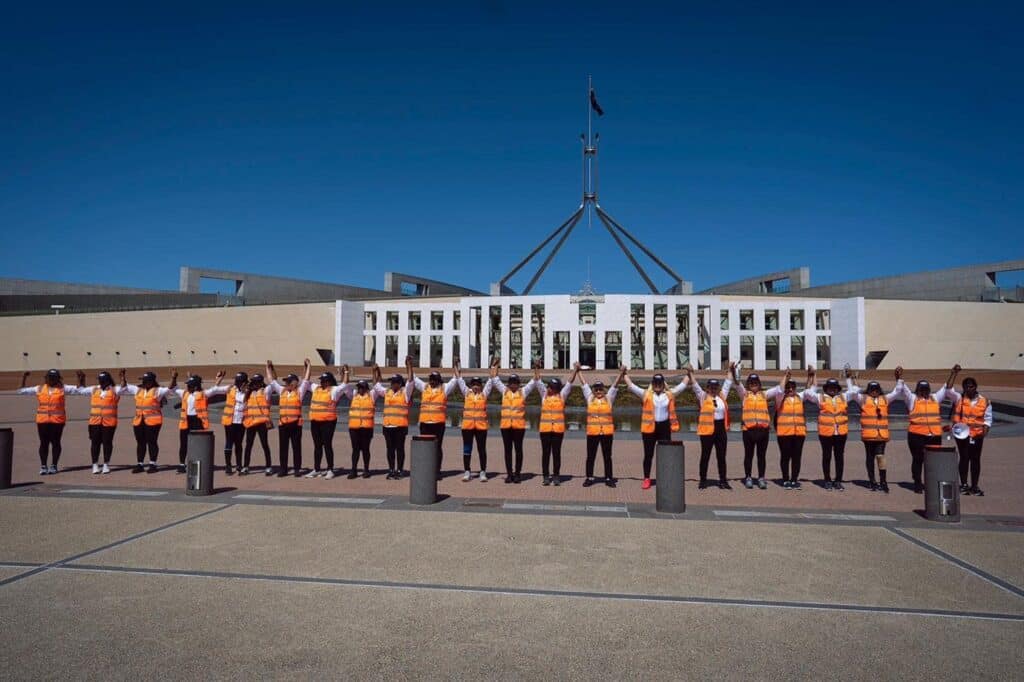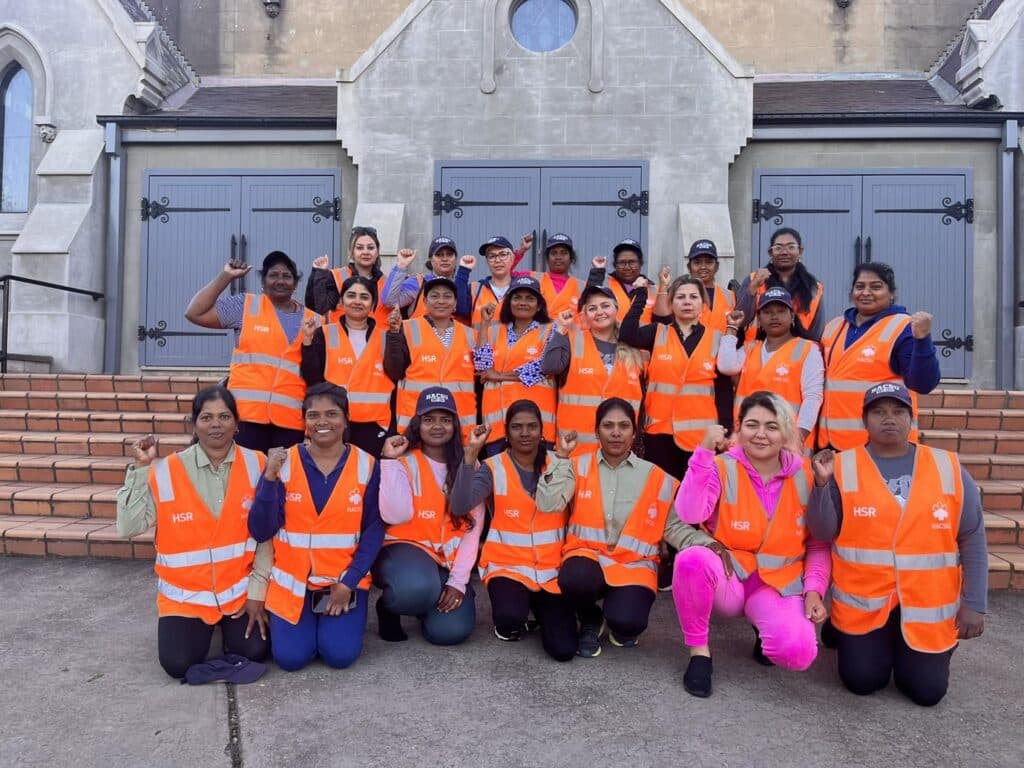Last month, a group of 22 refugee women walked 650km from Immigration Minister Andrew Giles’ office in Victoria to Parliament House in Canberra.
The women are part of the Refugee Women Action for Visa Equality group and are demanding that the government end the years of limbo they have each experienced and grant them permanent visas. The walk took 27 days, with the women walking 20 to 30 kilometres each day, seeking shelter and support from local community groups and churches along the way.
The 22 women are Tamil and Iranian, and live in Australia on short term bridging visas. They have been denied a fair assessment for their applications for protection under the previous Coalition government’s “fast track” process that continues to impact more than 10,000 refugees.
The “fast track” process was imposed on about 31,000 people who sought asylum in Australia, coming by sea, before January 2014, as well as the children born to these people.
While in opposition, Labor criticised the Coalition’s “fast track” process and pledged prior to the election to remove it. As yet, the government has not moved to change the reality of the people who are still subject to it, continuing a seemingly endless limbo for thousands of people.
Speaking to Women’s Agenda recently, one of the group’s leaders, Geetha Ramachandran, explained that she and her family had been living in limbo in Australia for 11 years. She decided to lead the walk to Parliament House to raise awareness of the pain and uncertainty thousands of refugees in Australia are facing, living without permanency.
“I came to Australia with my family, my two sons and husband. Since then I have had my daughter who was born here,” Geetha said.
“We came here for safety and to protect ourselves from the genocide in Sri Lanka of the Tamil people. Many of my relatives died during this terrible atrocity. We wanted our children to have safety and an equal opportunity in life which was denied to us back in our home countries.”
Ramachandran said that when she came to Australia, she thought her family would be secure and safe, but the uncertainty of their visas has been detrimental to their life and wellbeing.
“But due to the visa, our futures are uncertain and left with a big question mark. My grandma is a refugee, my mum is a refugee, me and my children are refugees. We have been refugees for generations and generations. It’s not fair!”

As for their situation in Australia, Ramachandran said says “there is no permanent work, very limited study rights and no safety for the future. The government has been revoking Medicare as well as work and study rights for some of the people. I know families who this is happening to.”
Geetha’s oldest child has just finished Year 12, but is not able to apply for higher education in Australia because they do not have a permanent visa.
Ramachandran said the group of 22 women decided to undertake the 650km walk in the hopes that the government will see their immense suffering, and act to grant them permanent visas.
“We have been a part of the Australian community for 11 years, we worked here and our children have lived here most of their lives. They feel Aussie but are not acknowledged as Aussies by the government.”


